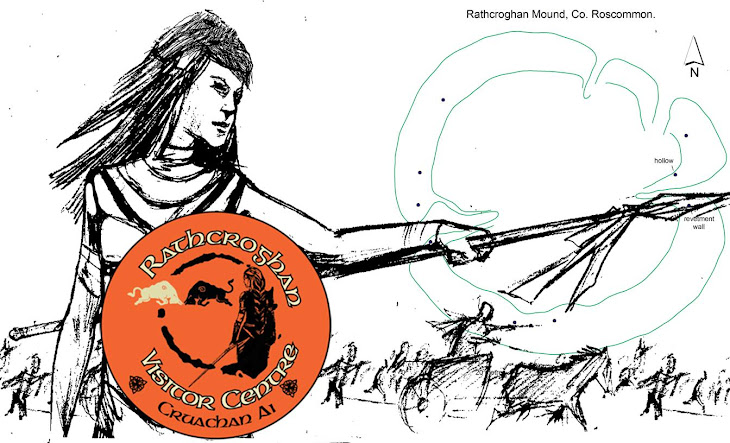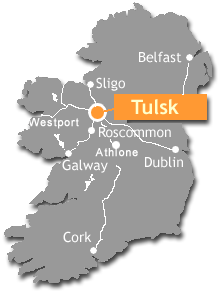Legal Tulsk
Tulsk may seem a village today but it has, or had, all the prerequisites to be a town during the last four centuries. some of these are; A religious settlement (the Priory), a cross roads, a river and a bridge, a big house (now demolished), a jail or barracks, a forge, a fair green and a courthouse. The long low building next to the current petrol station was the Courthouse for most of the 19th century. Records do exist and newspapers started to print reports of trails and convictions and some have survived in archives and local session books.
During the agrarian disturbances of
the 19th century, Roscommon topped the table in the number of violent
acts in the cause against paying rents and tax. There were hundreds of meetings both open
and clandestine, and thousands of arrests.
There were even murders; for instance
James Brennan was shot to death by the Moonlighters because his brother had
gone against the rent strike and paid his rent. Many were arrested for this
crime but because no evidence could be found against them there was no
prosecution.
An arrest at Roscommon Station in 1866.
Meetings were often dealt with by force by
the RIC and after the reading of the Riot Act people had only a few minutes to
disappear;
This is part of a report on a meeting that took place at Ballybeg, Tulsk.
Cattle-driving—Speech by Mr. J. Keaveney at
Tulsk.
04 May 1908 vol 187 From Hansard (the English Parliamentary Record)
"To ask the Chief Secretary to the Lord-Lieutenant of Ireland whether his attention has been drawn to the speech delivered on Sunday, 19th April last, at a public meeting in Tulsk, County Roscommon, by a Mr. J. Keaveney, in the course of which he recommended the people to keep up the fight wherever there was a grazier or rancher, let them make the place a small little hell for him, let the young men show fight and they would make it hot for England; whether Keaveney is a Justice of the Peace; and, if so, has the attention of the Lord Chancellor of Ireland been called to this incitement to cattle-driving; and what action, if any, the Law Officers have taken".
(Answered by Mr. Birrell.) "My attention has been called to a newspaper report of a speech said to have been delivered by Mr. Keaveney to the effect stated in the Question. Mr. Keaveney is a. Justice of the Peace ex officio. The matter has been brought to the notice of the Lord Chancellor and is under his consideration. No other action has been taken in the case".
This is a meeting dated June 8th 1914.
Licensing laws have always been a huge
part of Petty Sessions, the granting, the renewal, the revoking of….Here is a tale of people power.
This report from the petty court, from the Freeman’s
Journal of January 14, 1914, shows how
easily butter became a contentious issue. The quality of the butter would
determine the price and the water content was one way for a ‘country customer’
to make the butter go further. Butter was made in almost every home in rural
areas. The churn would stand on the kitchen table and a morning set aside. The standardizing of the contents had been brought in over the last half of the 19th
century and, as it says in the piece, even though it was recognized no attempt
was made by the shopkeeper to defraud, he was still fined a substantial amount.
It was around 1914 that the dairy co-operatives began and the individual sale
of butter to shops started to decline.
Most of these stories came from our fellow blogger, the http://tulsktatler.wordpress.com
Compiled by B. D'Alton









No comments:
Post a Comment